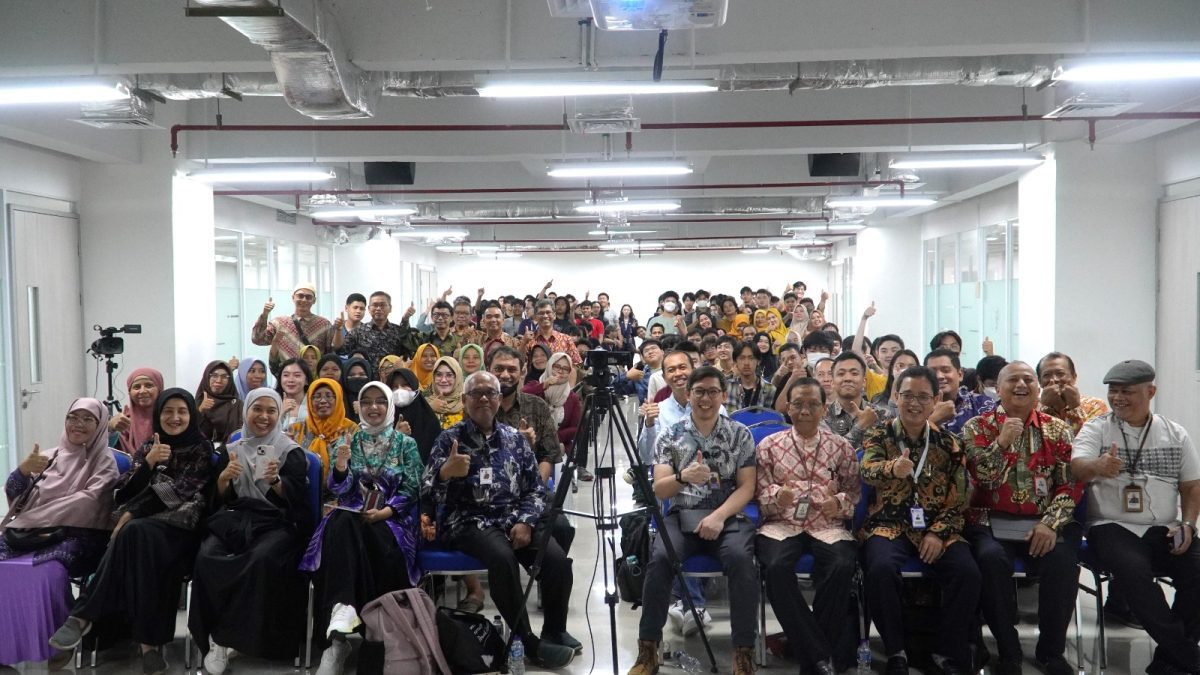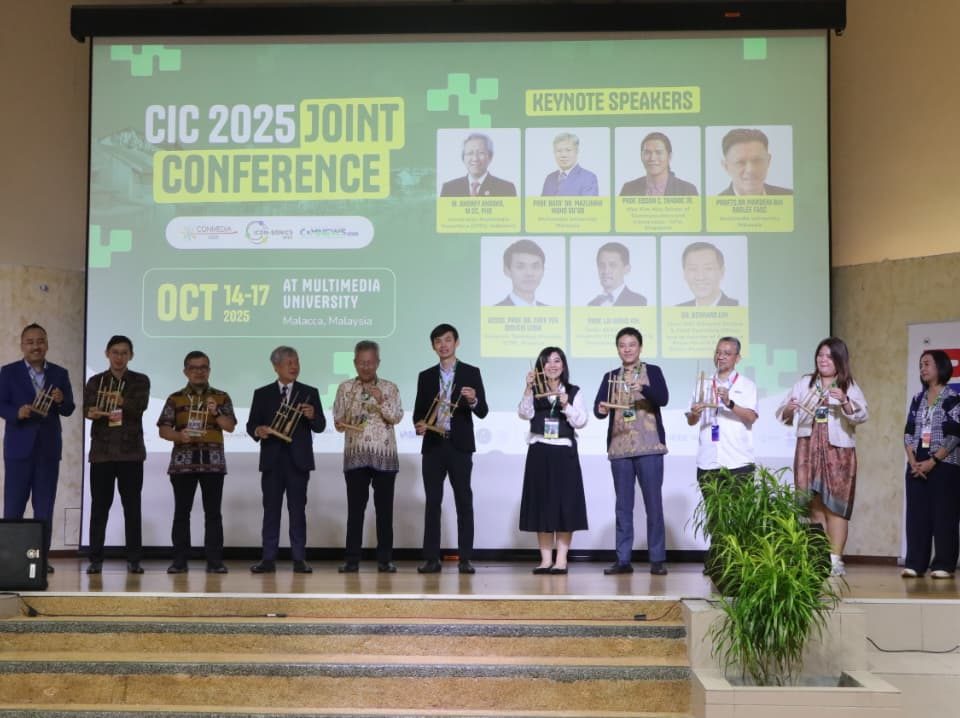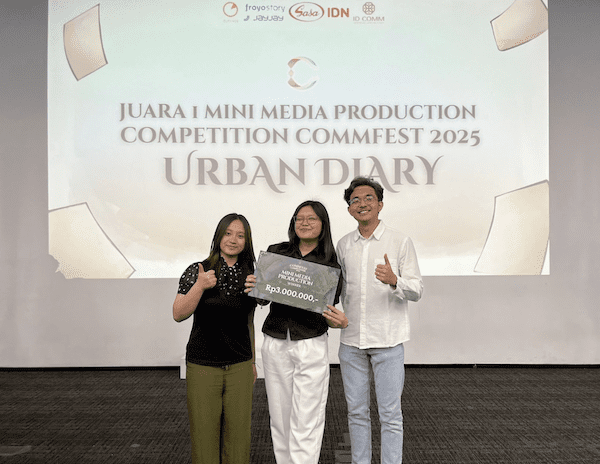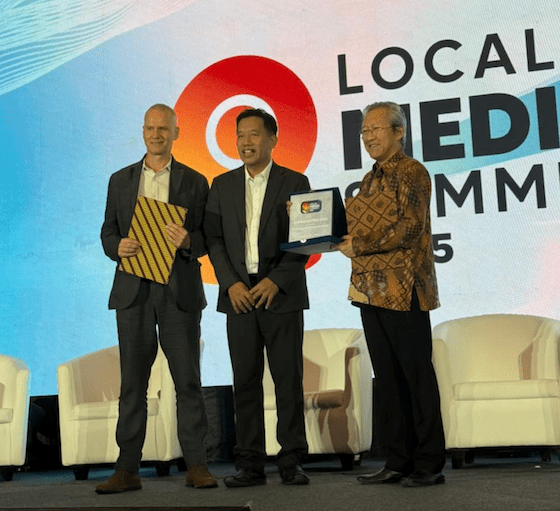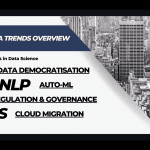
Career Opportunities in Machine Learning & AI Engineer without an IT Background
May 6, 2024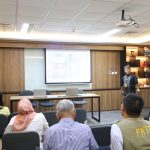
UMN Helps Kabupaten Tangerang Sehat Forum in Utilizing AI and Social Media to Improve Public Health
May 6, 2024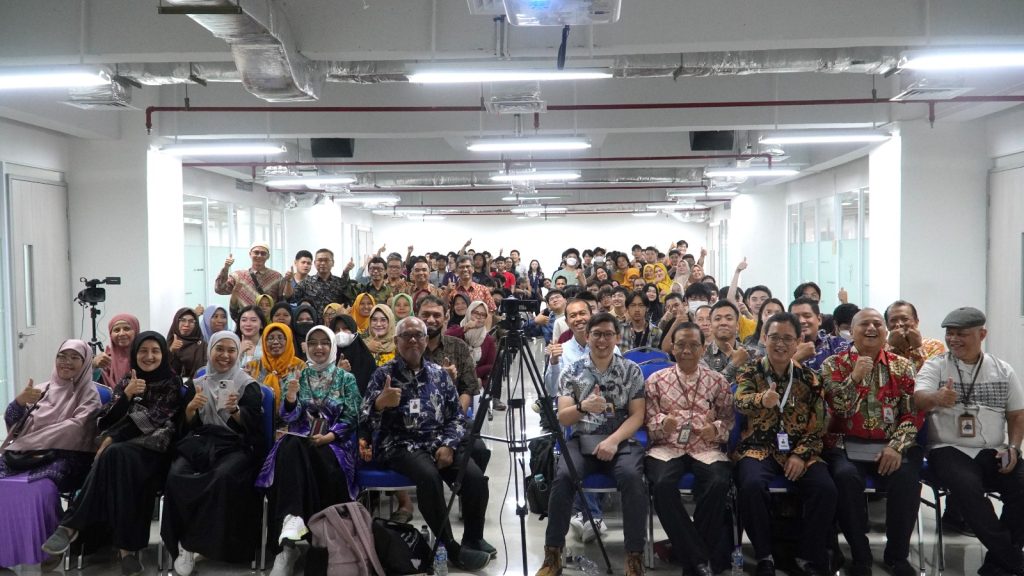
UMN and BSSM Give Training to MSMEs and Students (Doc. UMN)
TANGERANG – Universitas Multimedia Nusantara (UMN), together with the National Cyber and Crypto Agency (Badan Siber dan Sandi Negara/BSSN), held a socialization entitled “Digital Transformation Security” aimed at students and Micro, Small, and Medium Enterprises (MSMEs). This activity is a step in welcoming digital transformation.
In his remarks, BSSN Deputy for Cyber Security and Economic Coding, Drs. Slamet Aji Pamungkas said the reason for the socialization was the government’s policy on accelerating digital transformation toward a Golden Indonesia. This is emphasized because the digital economy is one of the backbones of the Indonesian economy.
In response to the rapidly growing digital economy, security is one of the crucial aspects that needs to be taken seriously. Security includes protecting customers’ personal data so that it is not spread and misused by irresponsible parties. Economic actors need to be aware of the importance of maintaining consumer personal data; one of the parties that has a role in this is MSMEs.
The Director of UMN’s Institute for Research and Community Service, Dr. Ir. P. M. Winarno, M.Kom., reminded the importance of digital literacy for MSME players to bring this nation to digital transformation.
“As entrepreneurs, it is important to not only understand the business accreditation process but also realize that behind the advancement of digital business, there is a serious threat that can destroy our business, namely cybercrime,” said Dr. Winarno.
He explained that one of the cyber dangers that might occur is data leakage. If this happens, the party that gets the leaked data can blackmail the entrepreneur, and consumers can sue the business unit.
“Therefore, we should not be affected by the side effects of this digital economy,” said Dr. Winarno.
Toto Alfin Atmojo, the Chief Executive Officer of PT Defender Nusa Semesta (Defenxor), also attended this activity. Toto explained another example of cybercrime, Ransomware. This crime is an attack on a computer system under the pretext of demanding a financial ransom from the victim by threatening, deleting, publishing, or withholding access to important personal data.
The impact of ransomware can vary, from system shutdowns to loss of public trust and dismissal from office. This is closely linked to personal data protection laws that cover both civil and criminal aspects.
In the civil context, businesses can be penalized if they collect consumer data but do not manage it properly, resulting in misuse of the data. These sanctions can include a fine of 2% of the company’s revenue and revocation of IT licenses. Meanwhile, in the criminal context, entrepreneurs or business units can be penalized if they intentionally disseminate consumer data.
To prevent unwanted things from happening to business players in this digital transformation era, UMN takes steps to equip MSME players with preventive methods.
120 MSMEs from UMN-assisted villages attended this activity. They were presented with the opportunity to listen to the material presented by resource persons and participate in workshops aimed at improving digital literacy skills.
There are three workshops available for MSME players and students, each of which offers unique benefits in improving understanding and skills related to cyber security. First, the workshop on “Ethical Hacking” provided an opportunity for participants to gain an in-depth understanding of how cyber attacks are carried out.
Through simulation and hands-on practice, participants learned to recognize security gaps in their own systems and know how to protect themselves from such attacks.
Then, the workshop on “Awareness” focused on raising awareness about cybersecurity threats among MSME players and students. In this session, participants were introduced to the different types of attacks and tactics used by cybercriminals, as well as the importance of precautions that can be taken to protect themselves and their businesses.
Finally, the “SOC Mentoring” workshop provided an opportunity for participants to get hands-on guidance from cyber security experts in setting up and managing a Security Operations Center (SOC).
It is hoped that through these activities, participants can improve their understanding of cyber security threats and effective protection strategies. With increased awareness and skills in recognizing and overcoming cyber attacks, it is hoped that MSME players and students can protect consumer data and their own data.
by Ivana Auliya | UMN News Service
English translation by Levina Chrestella Theodora
Kuliah di Jakarta untuk jurusan program studi Informatika| Sistem Informasi | Teknik Komputer | Teknik Elektro | Teknik Fisika | Akuntansi | Manajemen| Komunikasi Strategis | Jurnalistik | Desain Komunikasi Visual | Film dan Animasi | Arsitektur | D3 Perhotelan , di Universitas Multimedia Nusantara. www.umn.ac.id

